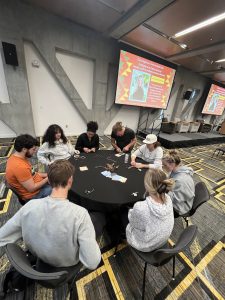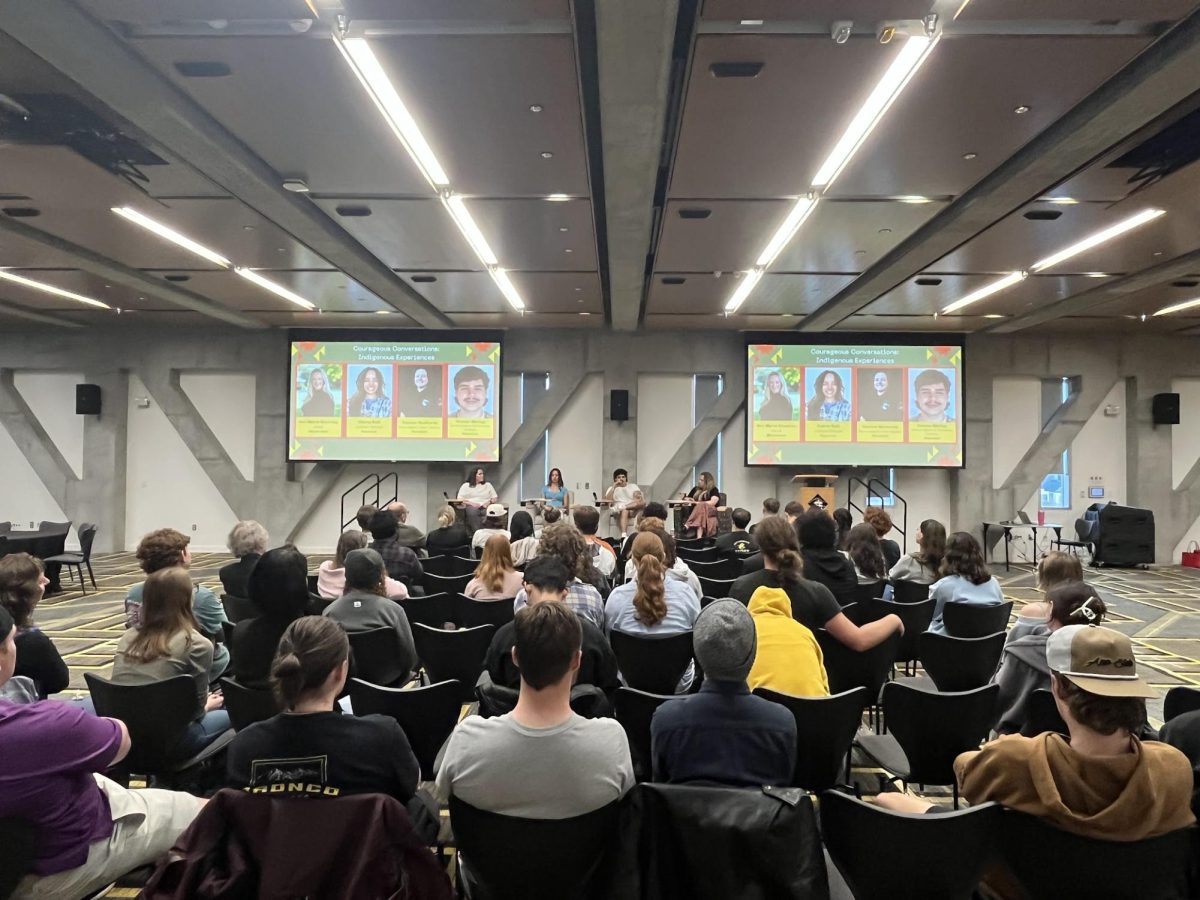The Student American Indian Movement and Walker College of Business came together Monday to host the Courageous Conversations: Indigenous Experiences panel discussion and cultural experience.
The event was the first panel discussion on the Indigenous experience to be hosted at App State this year and had a turnout of around 80 students, faculty members and community members.
One of the panelists at the event was Cierra Bell, a senior Spanish major and the president of the Student American Indian Movement.
“I became close friends with Meredith Pipes & Jacquline Tilton and we have been working on this event for over a year now,” Bell wrote in an email. “We wanted the audience to have a sense of what Indigenous Culture means and the lasting effect it has on not just us as native peoples but on our future generations.”
The event began with audience members making tobacco ties using a small amount of dried tobacco, fabric squares and a piece of rope.
“When you make these tobacco ties, they signify who we are as people, who we are as human beings, and especially with our Native culture we are very tied to who we are as people, our family members, our communities, and our culture,” Bell said at the event. “If you choose to burn it, you can put all your thoughts, words, and struggles into these tobacco ties, and when you burn it, it signifies letting go.”

The panelists at the event included Bell, senior history major Connor McCoy, senior exercise science major Cember Beilhartz and senior supply chain management major Ann Marie Bleakley. The panelists represented four different tribes: the Lumbee Nation from North Carolina, the Eastern Band of Cherokee Indians from North Carolina, the Muscogee Creek Nation from Oklahoma and the Aleut Tribe from Alaska, respectively. Bleakley served as the moderator for the discussion.
“Native people share stories and that is what we did at this event. We shared our experiences and who we are as Indigenous Peoples,” Bell said. “The topics that we discussed were our own personal stories and I think that has impact.”
Topics discussed at the panel included the economy of the tribes, opportunities and challenges of being an Indigenous student, why the panelists chose App State and how the panelists plan on using their degrees within their communities. The event aimed to spread more awareness about the experiences of Indigenous college students.
“Part of the reason we were interested in this is because people don’t really know about urban Natives, they don’t know about the average college student, they know about the long gone history, not the now,” Beilhartz said at the panel.
The panelists also answered questions from the audience about the difference between federally recognized and state recognized tribes, Indigenous representation in media, online learning at reservations and how to support the Student American Indian Movement.
“We don’t speak for every single Native, so if you have questions, it’s best to ask anybody whose Native what their tribal affiliation is, what their life is like, what their culture is like, because it’s going to vary from person to person, tribe to tribe,” McCoy said during the panel. “In life, you’ll probably meet a bunch of people who may not fit in your stereotypical depiction of what a Native American person looks like, but they are Native, and they have their own experience and their own stuff to share.”
After the panel, the club served traditional Lumbee homecoming food consisting of collard greens, cornbread, chicken and pastry, fatback, sweet potato tarts and chow chow.
“We’re trying to grow our club and do events and other things to spread awareness and to let other Native kids know that they have a community, they have a support system,” Beilhartz said. “We really want everyone to come to college and have that experience and not feel like they can’t because they don’t want to leave home and won’t have anybody.”

